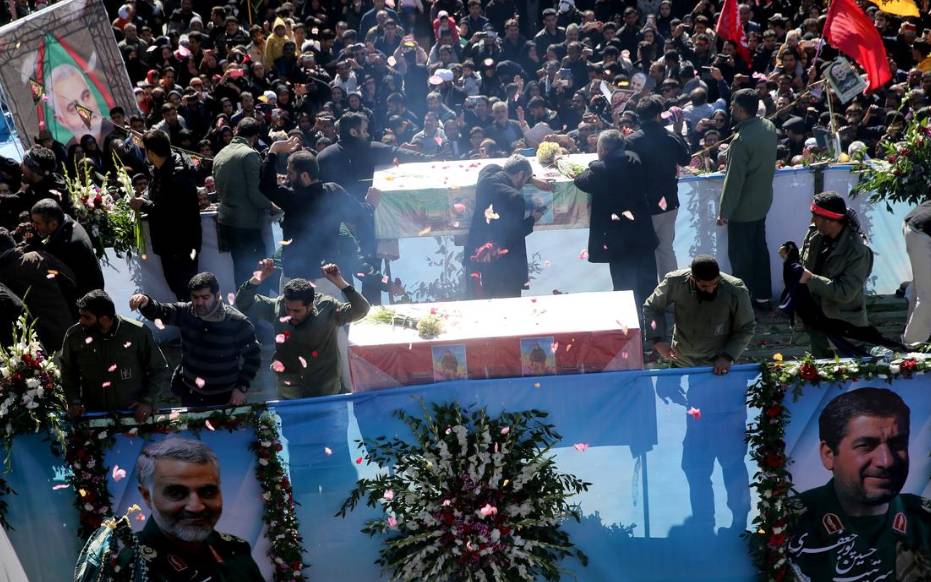×
The Standard e-Paper
Kenya’s Boldest Voice

Iranian people attend a funeral procession and burial for Iranian Major-General Qassem Soleimani, head of the elite Quds Force, who was killed in an airstrike at Baghdad airport, at his hometown in Kerman, Iran January 7, 2020. Mehdi Bolourian/Fars News Agency/WANA (West Asia News Agency) via REUTERS
Iran is considering 13 scenarios to avenge the killing of a top Iranian military commander in Iraq by a US drone attack, a senior Tehran official said on Tuesday as the general’s body was brought to his hometown for burial.